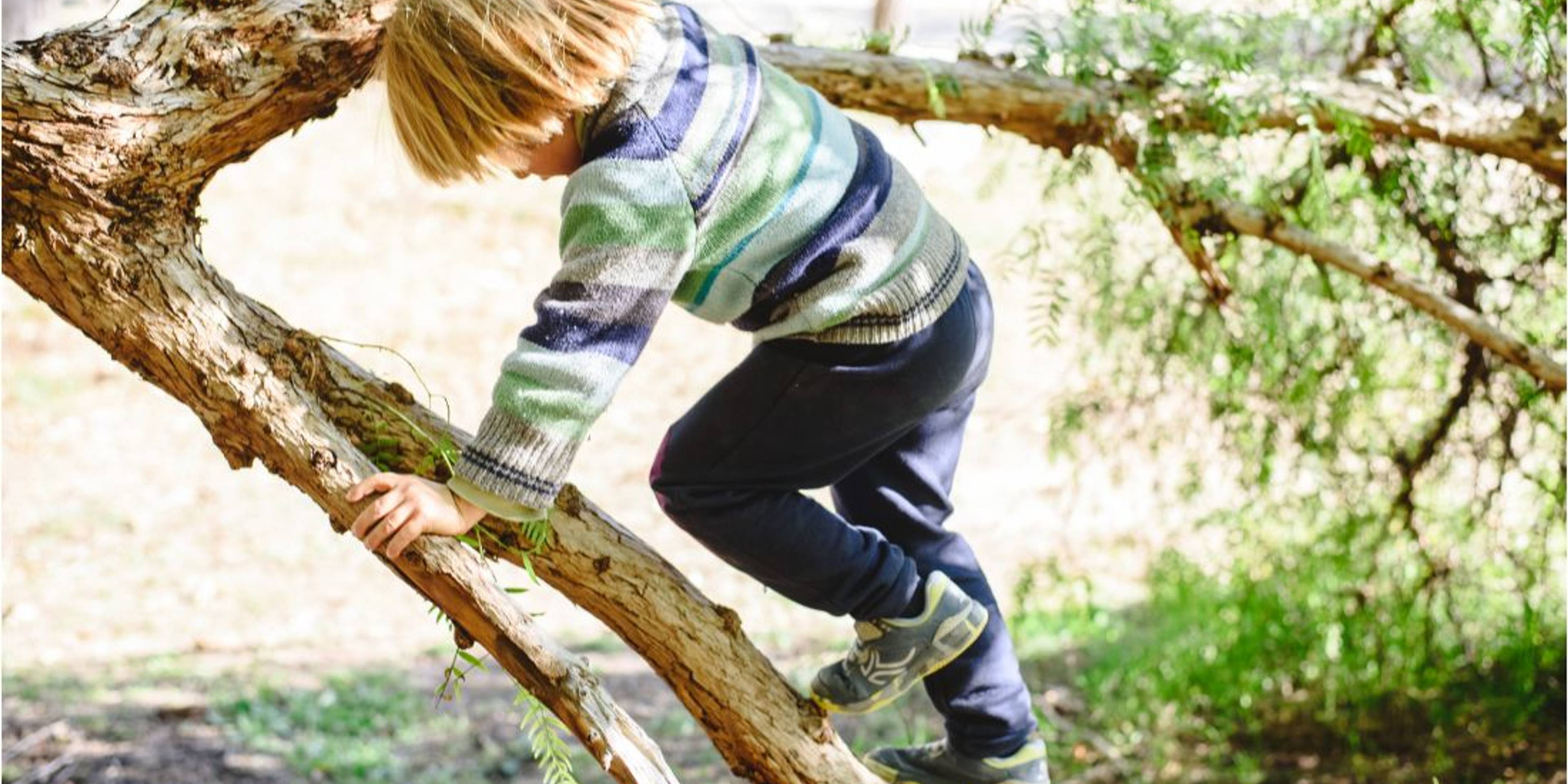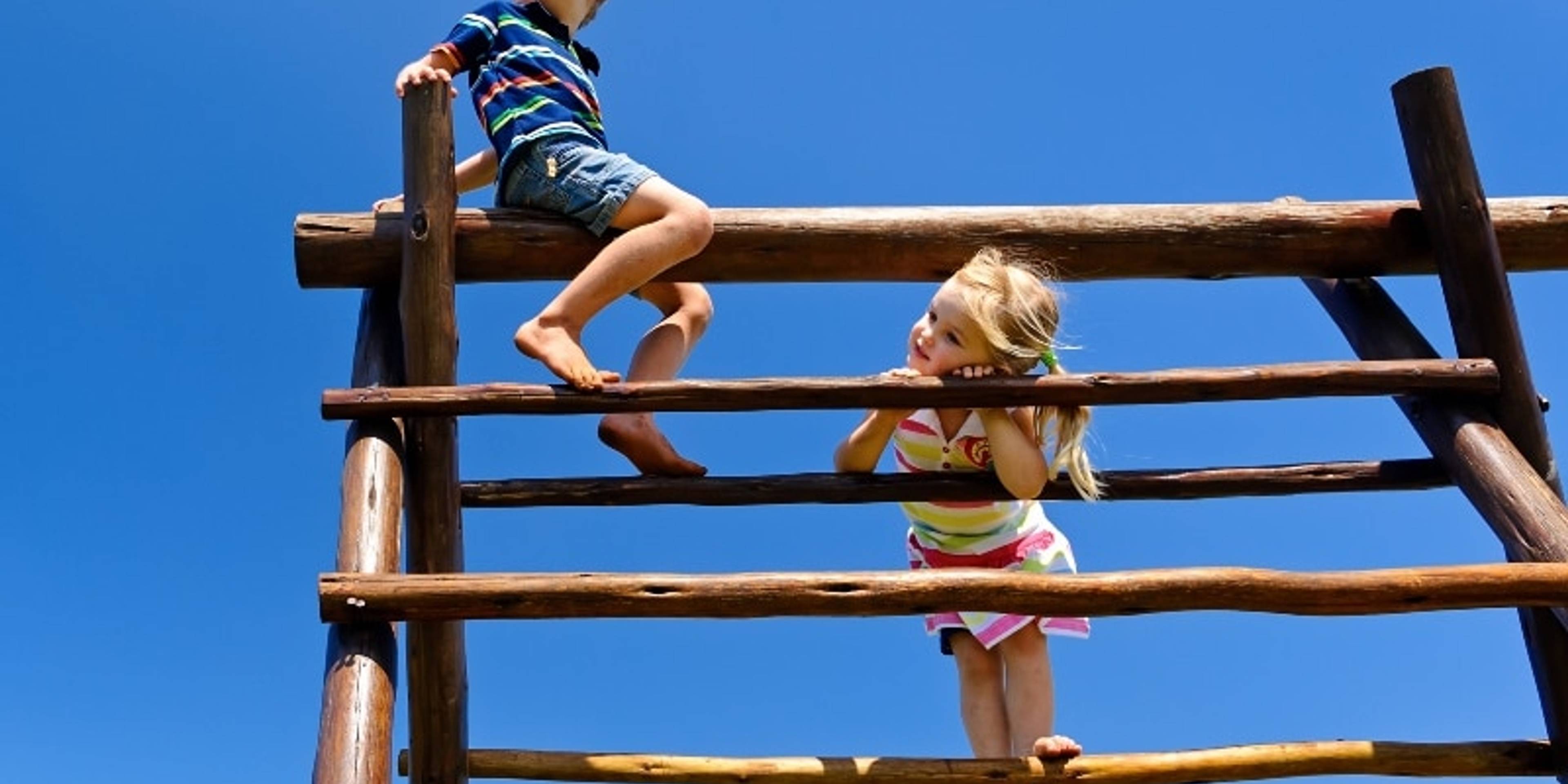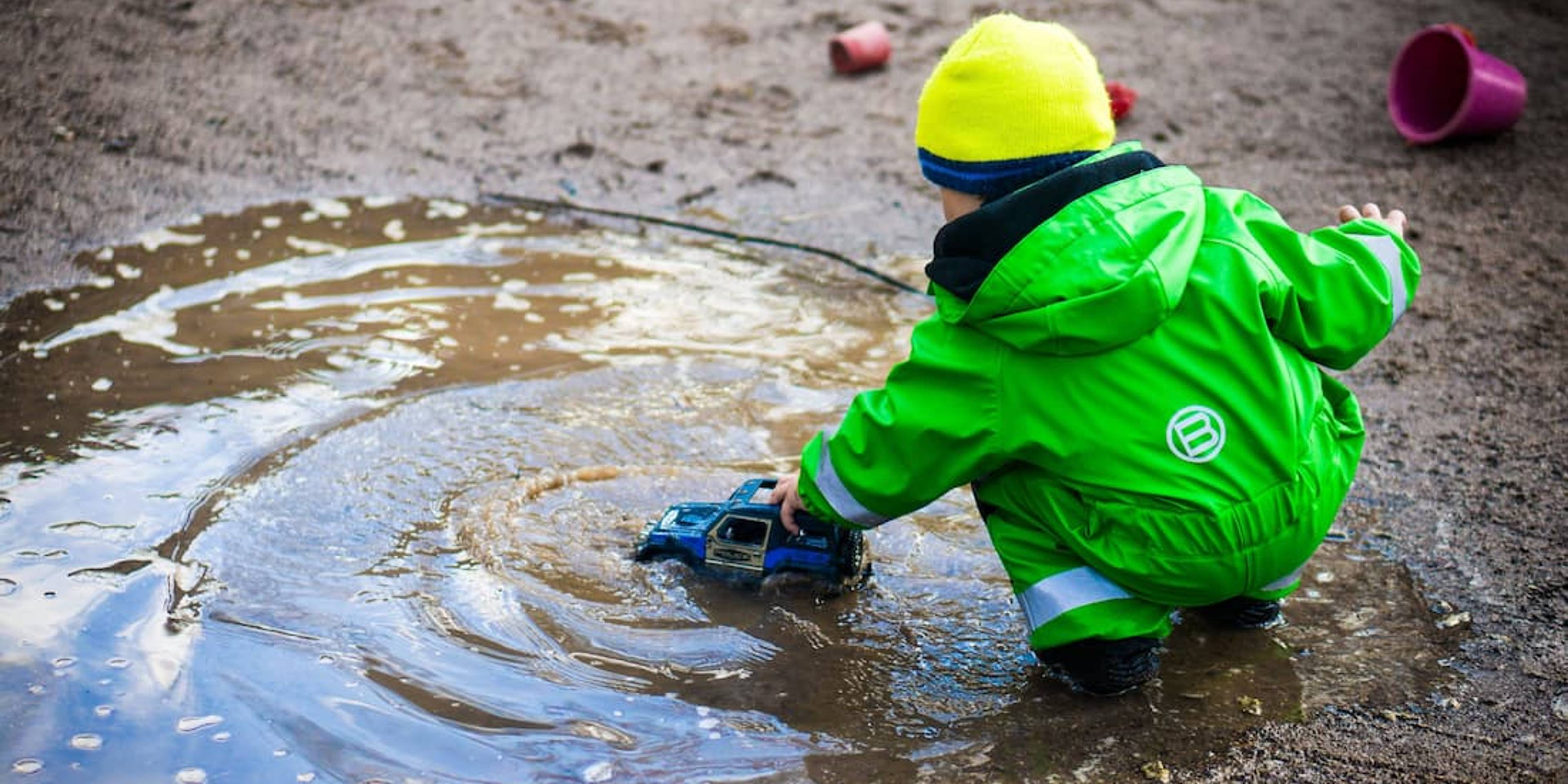April 22, 2025
Encouraging adventurous play in the preschool years
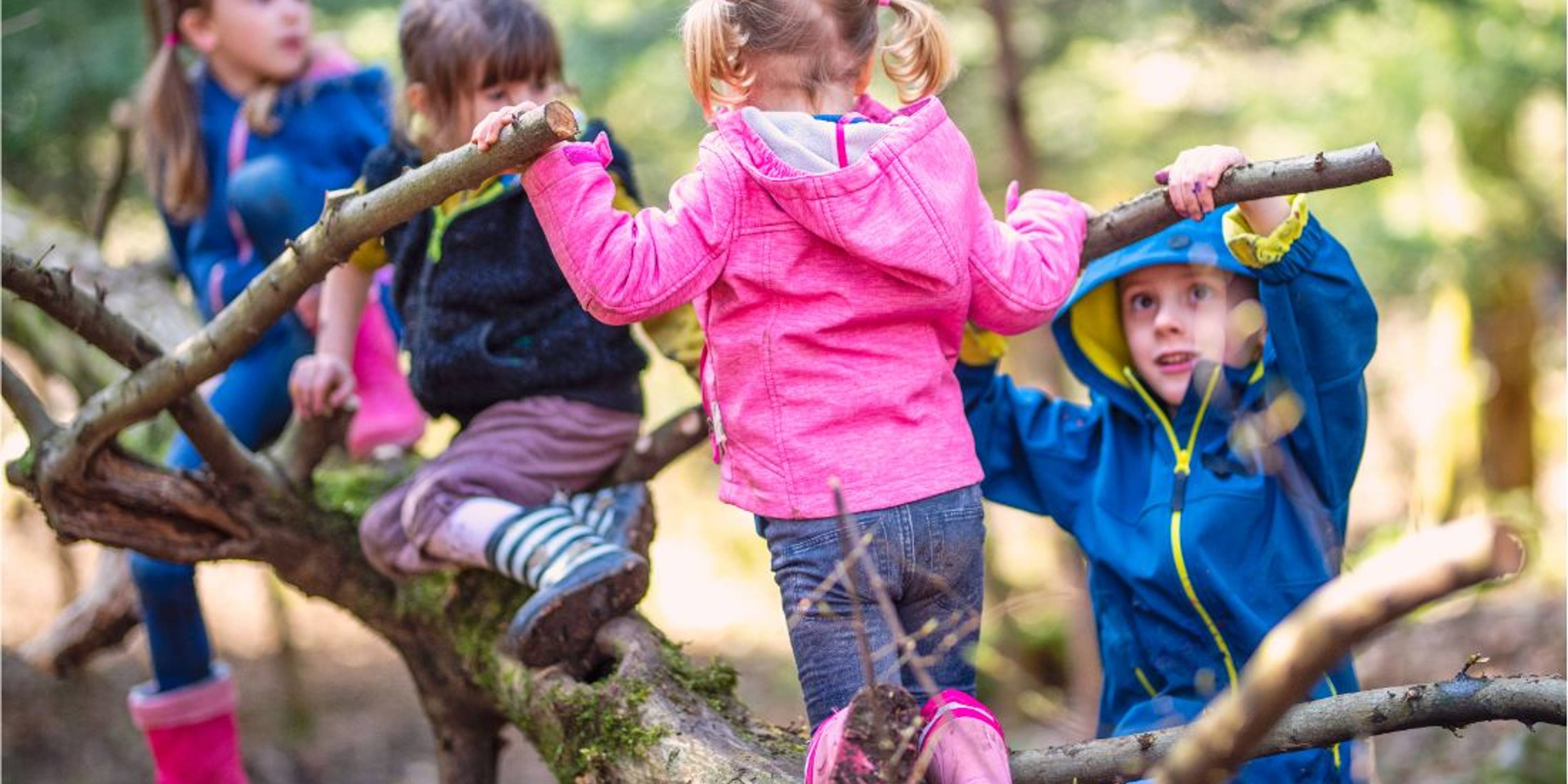
Tune into our podcast interview with April's researchers of the month here.
As well as providing numerous opportunities for exploration, joy, and expression, outdoor and adventurous play - the type of play that allows children to take age-appropriate risks - is associated with a range of positive health behaviours and outcomes. Yes, we're talking about the kind of play that might leave us adults with our hearts in our mouths at times, as children start to disappear up a tree, or engage in a rough and tumble game of chase. But its benefits are wide-ranging and known impacts include increased levels of habitual physical activity alongside better mental health and positive mood.
In 2019, Dr Hesketh was involved in the creation of physical activity guidelines in the UK, which explicitly note the importance of outdoor play for children in the preschool age group. We know quite a lot about the play habits of school-aged children, but until now, have had significantly less data on their younger counterparts.
Our Researchers of the Month, Dr Kathryn Hesketh and Professor Helen Dodd set out to discover how much time preschool-aged children spend playing in a range of indoor and outdoor spaces, and how adventurously they are playing within them. In the first national survey of play in children of this age, they asked over 1000 parents of two to four year olds about their children’s play habits, finding that, on average, children aged two to four spend around four hours per day (outside of educational settings) playing. Just under 50% of this was spent playing outdoors. Their findings shed interesting light on some inequalities in play, even in the youngest age group, which may exacerbate existing inequalities in health.
Summary
The survey showed that preschool-aged children living in Britain spend, on average, more time playing inside than they do outside, with the majority of play happening inside at home.
Outdoor play most often takes place in gardens or in other outside space at home, followed by playgrounds and in green space. Indoor play centres were also found to offer opportunities for adventurous play. The researchers also found that children living in rural areas play outside more than those living in urban areas, and also that white children tend to play outdoors more than those from ethnic minority groups. One of the survey’s most interesting findings is that preschool-aged girls spend much less time playing outdoors than boys. The British Children’s Play Survey of children aged five to 11 has already found similar (perhaps more expected) gender differences, but seeing stark disparities at this very young age surprised and shocked our researchers. As girls get older, their physical activity levels are generally less than boys of the same age. These findings indicate that girls are in a position of disadvantage from a very early age, with potential physical and mental health consequences.
"We were quite surprised by these findings – it’s concerning that at age two, we’re already seeing these differences in the time that boys and girls play outdoors in nature. Older children tend to be socialised to particular gender roles, and girls may then spend less time playing outside in nature. We didn’t expect to see this pattern as early as age two and given the link between playing outdoors and physical activity, girls may already be at a disadvantage very early in life.” (Dr Kathryn Hesketh, 2024)
The study does not explore reasons for these differences, but previous research indicates that they may be driven by a broad range of factors, such as the availability of local green space, exclusion from green space on the grounds of race, differential emphasis on academic learning versus unstructured play, and parenting pressures.
So why does all of this matter?
Well, risky play and adventurous play helps children to develop necessary life skills, explore risk-taking in a relatively safe environment and develop strong decision making and coping skills. Playing in this way can help to arm children with an anxiety toolkit. Early exposure to low-level feelings of fear and excitement, and to situations where they feel a little bit uncertain, give children opportunities to practise coping, and allow them to discover what physiological sensations of arousal (like butterflies or a racing heart) feel like. It can help them to realise that when they experience butterflies again, in a non-play environment, nothing bad will happen, which can make them more resilient to inevitable feelings of anxiety as they grow, and gives them confidence in their own judgement. Offering children the chance to engage in adventurous play, which normally occurs outside, is vital.
The study shows that at a policy level, there is important work and thinking needed around access to outdoor play spaces. A significant body of research indicates that not everyone feels welcome in these spaces, and some people have trouble accessing them. It’s vital to ensure that outdoor, natural spaces are available and welcoming for everybody.
Implications
"The results highlight inequalities in play even in the youngest age group, which may exacerbate existing inequalities in health." (Professor Helen Dodd and Dr Kathryn Hesketh, 2024)
Implications for parents
Let's try to consider how we might provide play opportunities, but also when we might inhibit play. Some children gravitate towards the adults present during play and miss out on the social elements of play with peers. Be mindful of this. It's important to both facilitate play opportunities with peers, and play with children ourselves.
Reflect on any anxieties you may have about your child’s involvement in adventurous play and whether or not these might be limiting. It’s healthy and normal to feel anxious about your child getting hurt during adventurous or risky play. But remember, what we do with any feelings of anxiety is impactful. Questions to consider might be: Do I encourage my child to take age-appropriate risks which might benefit them? If I always seek to protect them, what strategies might I use to give them a little more freedom? Could I allow them a little more time to make their own decision before intervening? If I know that I am particularly anxious about this kind of play, is there another adult in the family who is well positioned to take them on an adventure?
As children get older, empower them to understand that they can make good decisions. By the age of four, many children have a good idea of what they can do and what feels too much. Ask them, “How do you feel? Do you think you can do it?” Be their supporter!
If your child is anxious about adventurous play, be their cheerleader. Let them know that you have confidence in them and are there to help them if it goes wrong. Don’t intervene or stop them as soon as they express fear. Instead, as long as they are safe, gently encourage them. “Can you go one step higher? Can you stay one minute longer?” Support them through their anxieties and go through the journey with them.
Remember, exposure to fear within a safe environment is not a negative thing. Generally, when we are exposed to things that make us feel scared or uncomfortable, we learn that it wasn’t as scary as we feared and that we can cope with more than we think we can. Offering your children learning experiences like this will help to reduce anxiety.
Try to consider and interrogate how your gender perceptions might influence interactions with your children. The survey showed that male caregivers were less likely to let their daughters play adventurously than their sons. Remember that providing the same opportunities to both boys and girls allows them to gain insight into their own interests and limits.
Implications for educators
Consider risk-benefits carefully. Dr Hesketh and Professor Dodd note that childcare providers often feel constrained by safety regulations and that schools and early years settings generally take a risk-averse approach to play. However, the Play Safety Forum recommends that educators should consider the risk-benefits of play. Where there is risk, is that risk offering a benefit? And do the benefits outweigh the risks?
Last year, Professor Dodd worked with Play Wales to develop an early years toolkit to support outdoor play. This resource, which is packed with practical tips for early years settings, can be found here.
Primary settings might like to check out OPAL, an organisation which creates fantastic playtime programmes. Professor Dodd has evaluated the impact of their work, finding a decrease in negative emotions, fewer behavioural problems, and a hugely positive response from school staff, who noted that children with special educational needs and those who previously had social difficulties during playtime, were much happier, more engaged and better occupied.

Dr Kathryn Hesketh and Professor Helen Dodd
UKRI Future Leaders Fellows
Dr Kathryn Hesketh is a Behavioural Epidemiologist and Principal Research Fellow at University College London. She is an expert in movement behaviours during the transition to parenthood and during the first five years of life. Kathryn is a UKRI Future Leaders Fellow – her programme of work seeks to understand how movement behaviours influence health and wellbeing, and how we can better promote physical activity and play during pregnancy, postnatally, and in the preschool period.
Helen Dodd is Professor of Child Psychology at the University of Exeter Medical School. She is an expert in children’s play and mental health, with a particular interest in child anxiety. She also holds a UKRI Future Leaders Fellowship, which funds her research programme examining the role of adventurous play in preventing anxiety.
Dr Kathryn Hesketh and Professor Helen Dodd
UKRI Future Leaders Fellows
Related Resources
Scroll our research gallery

Mar 17, 2025
Fostering a school culture against bullying: the KiVa Programme
Bullying is an extremely important public mental health risk. Around one in five primary school children report being bullied at least weekly. Children who are bullied are more likely to experience depression and anxiety, and are at heightened risk of mental health issues in adolescence and adulthood. Whilst schools in England and Wales are required to have anti-bullying policies, rates of bullying remain high. Bullying is preventable, but schools need more help to tackle it. Typically, school policies focus on how to handle bullying once it happens. However, evidence suggests that a comprehensive approach involving the entire school to prevent bullying, alongside clear strategies for addressing confirmed cases, is the most effective way to tackle the issue. KiVa is one such whole-school approach, developed in Finland by Professor Christina Samivalli. A large study in Finland which involved 28,000 primary school pupils found that adopting the KiVa programme in Finnish schools significantly reduced bullying and improved children's mental wellbeing. The programme has since been rolled out nationally by the Finnish government and ongoing use of KiVa in Finnish schools is associated with year-on-year incremental reductions in bullying. Along with colleagues, our researcher of the month, Professor Judy Hutchings OBE, has tested the effectiveness of the KiVa Programme in UK primary schools. The study involved over 11,000 children in Wales, Birmingham, Oxfordshire and Devon, and showed a 13% reduction in reported rates of bullying when compared with existing school approaches to tackle bullying.
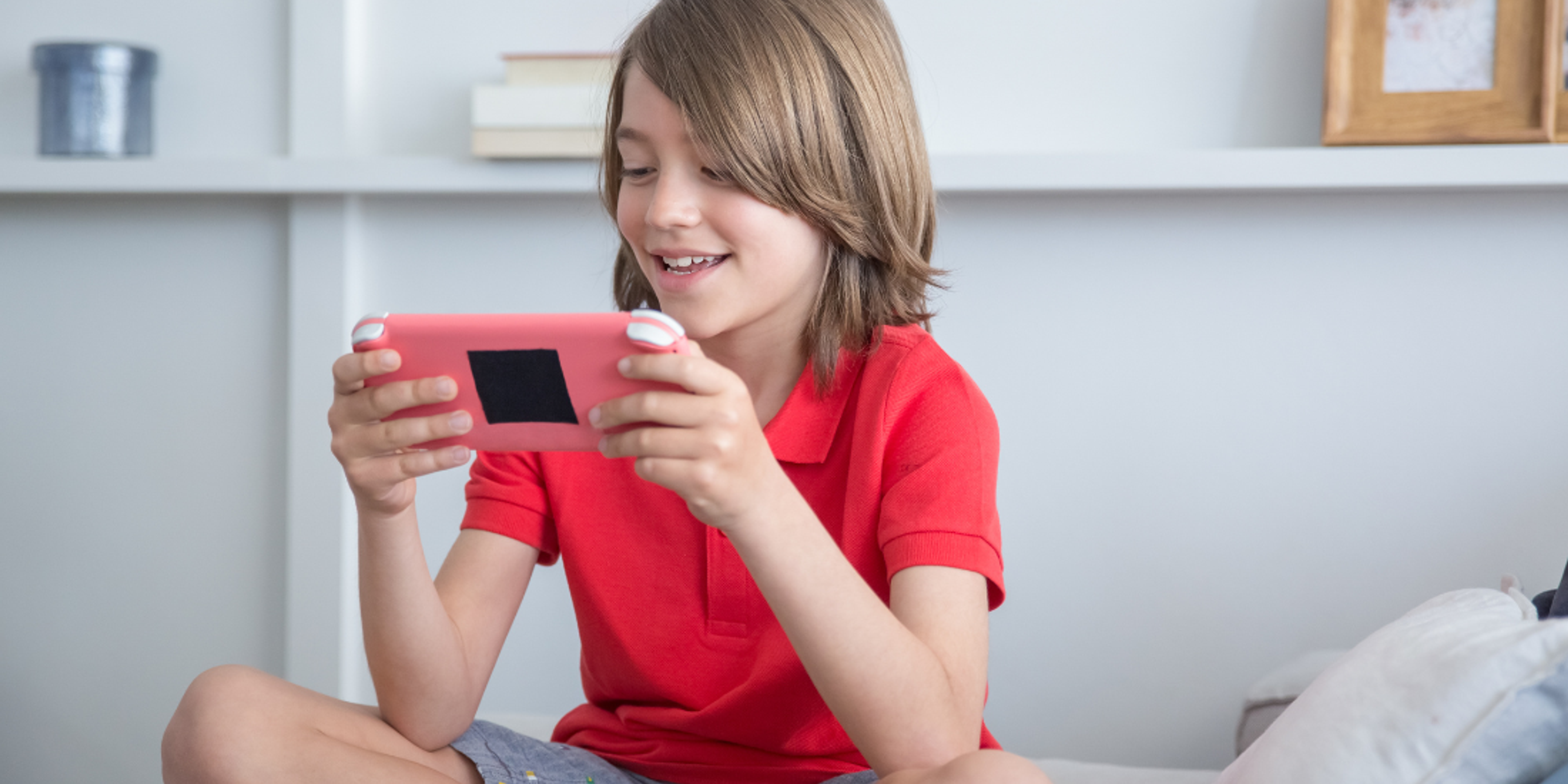
Feb 12, 2025
When is the right age? Searching for age-appropriate ways to support children's online lives
Currently, children's and young people’s use of digital technology is rarely out of the news. Age limits are debated. Calls for stronger limits are made, and questions are raised regarding whether society should ban 'under-age' children from various aspects of the digital world. 13 years of age is often cited as a digital 'age of consent', though this varies in some countries. Commonly used age limits are largely arbitrary, based primarily on US legislation, rather than evidence. In a recent paper, our researcher of the month, Dr Kim Sylwander, and her co-author Professor Sonia Livingstone, consider age milestones and evaluate whether or not the evidence supports them. Are age limits the optimal way to regulate children’s digital experiences? Does it matter that they are widely contested and often poorly implemented? And are common boundaries even the “right” age, according to evidence from the field of children and digital media? Dr Sylwander persuasively argues that moving forward, a developmental approach can better support children’s rights.
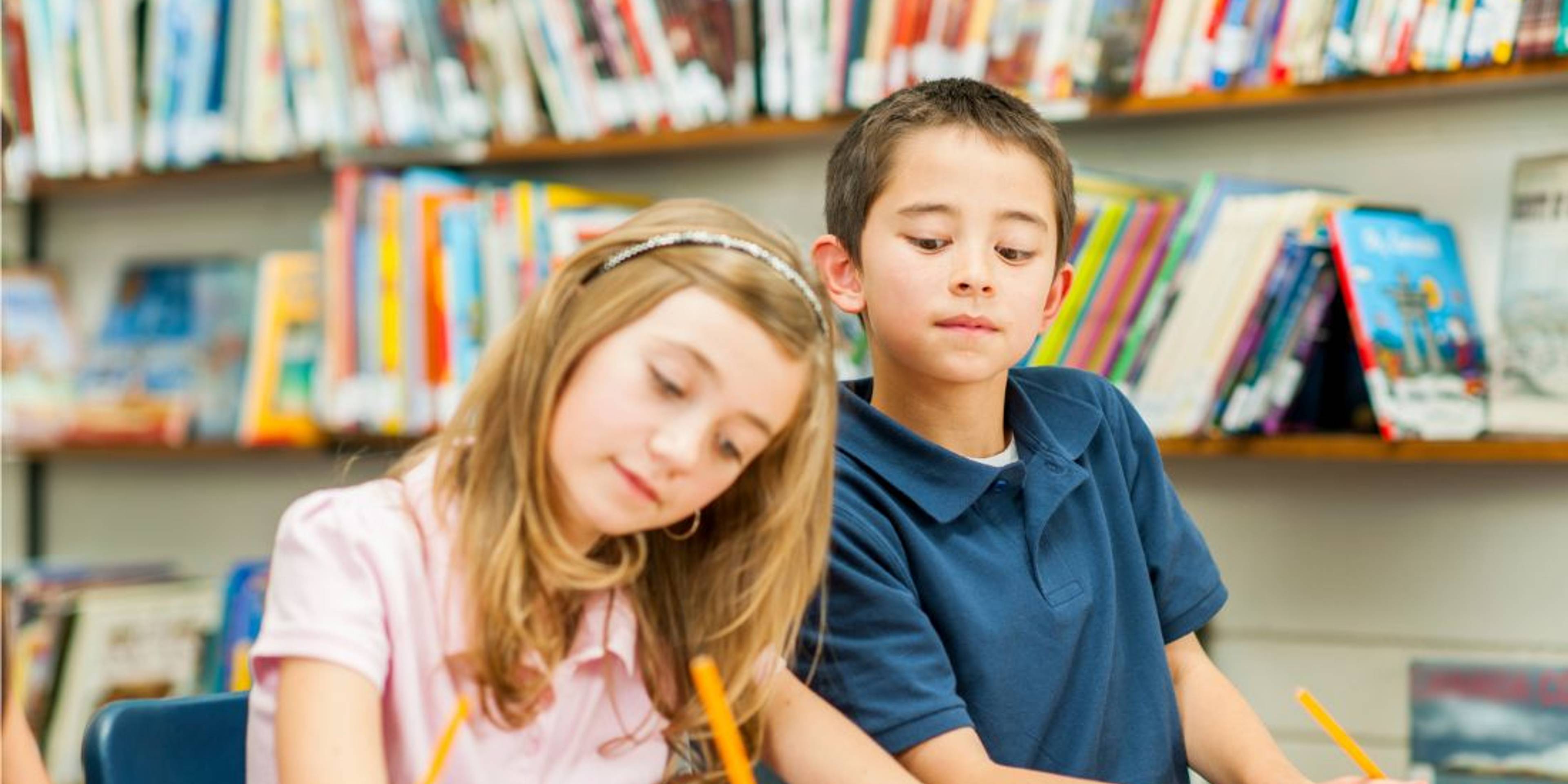
Jan 14, 2025
Showing faith and trust in children nurtures integrity
A new study which explores the development of trust and integrity in children has found that expressing trust in young children encourages them to behave honesty. The research team, including our researcher of the month, Professor Li Zhao, studied whether children were less likely to cheat in a simple test of counting accuracy if the adult administering the test had previously conveyed trust in them. They found that children who were trusted cheated less than those who were not trusted. These findings provide novel evidence about the causal effect of trust on the development of children's honesty.

Dec 17, 2024
Intrinsic reward and word learning
From infancy onwards, humans display an innate motivation to acquire language and to communicate. We start acquiring words as babies and continue to do so throughout our lives. In fact, children are thought to learn over 3000 new words each year. However, relatively little work has focused on why we are motivated to learn words, particularly when it comes to adolescents. Adolescence is a period of great neurological change and sensitivity to learning. It's also marked by changes in reading behaviours. Whilst children become skilled readers between the ages of 10 and 18, this period is also associated with motivational changes in reading, with teens frequently showing a disinclination to read for pleasure. This change often coincides with the transition from primary to secondary school. Policy makers are keen to motivate adolescents to read for pleasure, arguing that it would improve not just literacy outcomes, but also result in substantial economic and societal benefit. Recent research has shown that adults find learning words to be intrinsically rewarding, and that this intrinsic reward facilitates the entrance of new words into long-term memory. Our researchers of the month, Professor Saloni Krishnan and Professor Pablo Ripollés, set out to establish whether the same is true for children and teens.

Nov 14, 2024
Delivering effective menstrual education
Research has shown that menstruation and menstrual cycle symptoms can be disruptive and detrimental to physical, mental and social wellbeing. As many as 93% of teen girls experience dysmenorrhea (severe cramps) and girls with a typical cycle experience 11 menstrual cycle-related symptoms on average, potentially including mood changes, stomach cramps and increased levels of anxiety and fatigue. Adolescents with problematic symptoms have reported a negative impact on school attendance, behaviour, confidence around peers and participation in physical activity. In the United Kingdom, evidence suggests that menstrual health education delivered by teachers generally focuses on menstrual cycle biology, as opposed to management of menstruation and menstrual cycle related symptoms. Our latest researcher of the month, Dr Natalie Brown, set out to understand young people’s perceptions of menstrual education in schools and their experiences of menstruating whilst at school, including within physical education. Her study involved nine focus groups with 10-15 year old female pupils attending primary and secondary schools across England and Wales. Pupils highlighted that, in their experience, menstrual education is limited and noted that the menstrual cycle impacts negatively on their school experience, affecting participation in sport and school attendance generally. Participants highlighted a need for more support and information regarding understanding and managing periods in school.

Oct 17, 2024
How influential is social media on young people's mental health?
A significant body of evidence tells us that young people's mental health has decreased over time, and a potential link between social media use and this mental health decline has triggered wide interest and concern. Research into social media use and mental health is being conducted at a rapid pace but, so far, findings are far from conclusive. Our new Researcher of the Month, Dr Margarita Panayiotou, adds to this body of work. She led a team of researchers who recently published a study involving thousands of young people in the UK. It set out to explore the interplay between social media use and teens' mental health, wellbeing and social life, and found that when considering the complex combination of multiple factors, things such as a lack of family support are arguably more important for adolescent mental health than social media use.
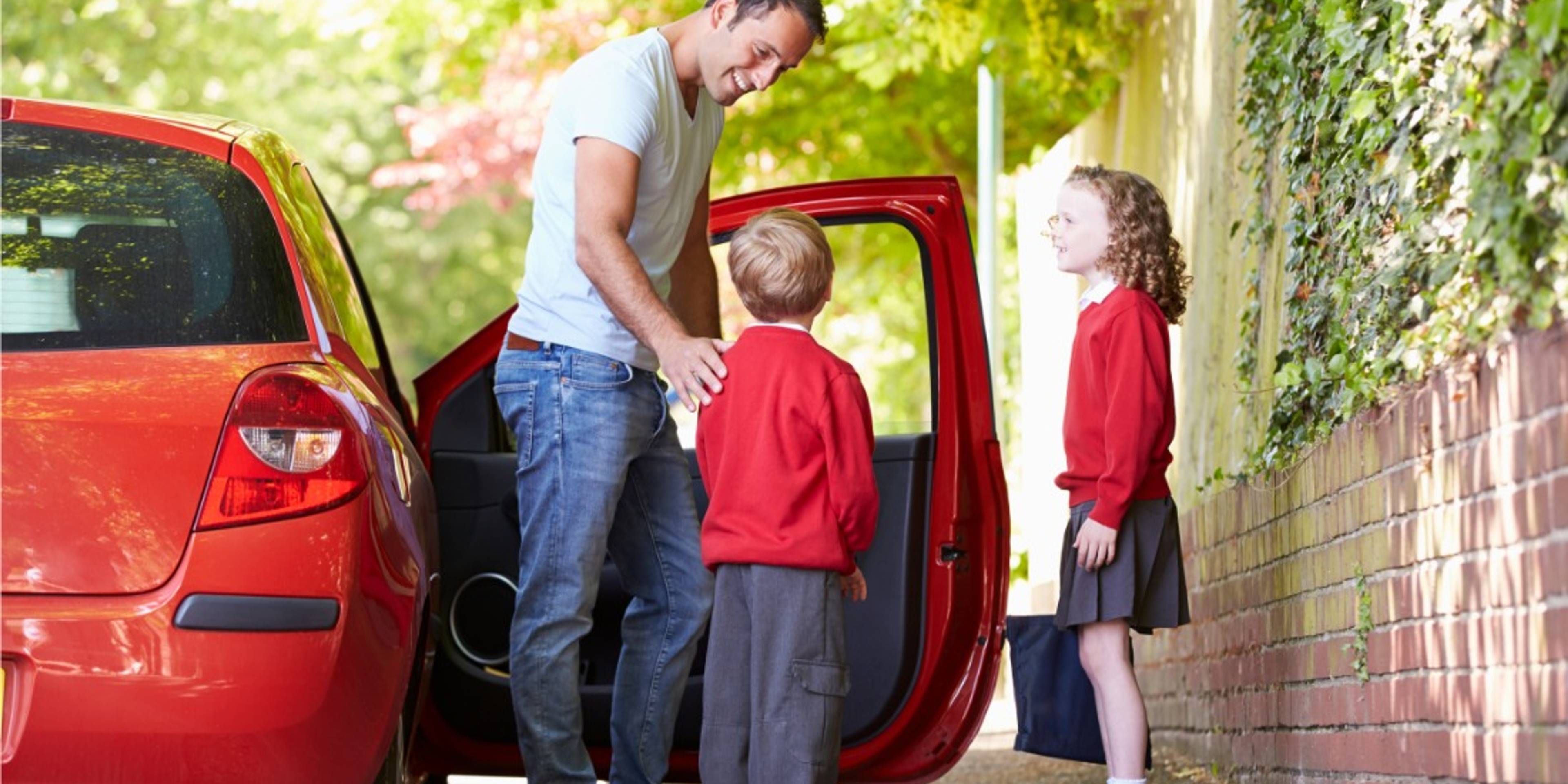
Sep 16, 2024
How do young children’s relationships with parents and teachers impact their adjustment to school?
We already know that children's relationships with their parents and teachers contribute to their school adjustment and achievement, and that positive, close relationships with adults are really important for a wide variety of children’s outcomes. However, few studies have examined interactions between these relationships or sought to address the nuances of children’s experiences in terms of how different relationships have different impact or influence. To address this, along with colleagues, our new Researcher of the Month, Dr Caoimhe Dempsey, has recently published an article which aims to examine the links between children's relationships with their mothers, fathers and teachers, and three domains of school adjustment: academic achievement, academic self-concept and behavioural adjustment in the classroom. By examining a range of data, the researchers sought to find out whether some children are more susceptible to the effects of the quality of their relationship with their teacher.
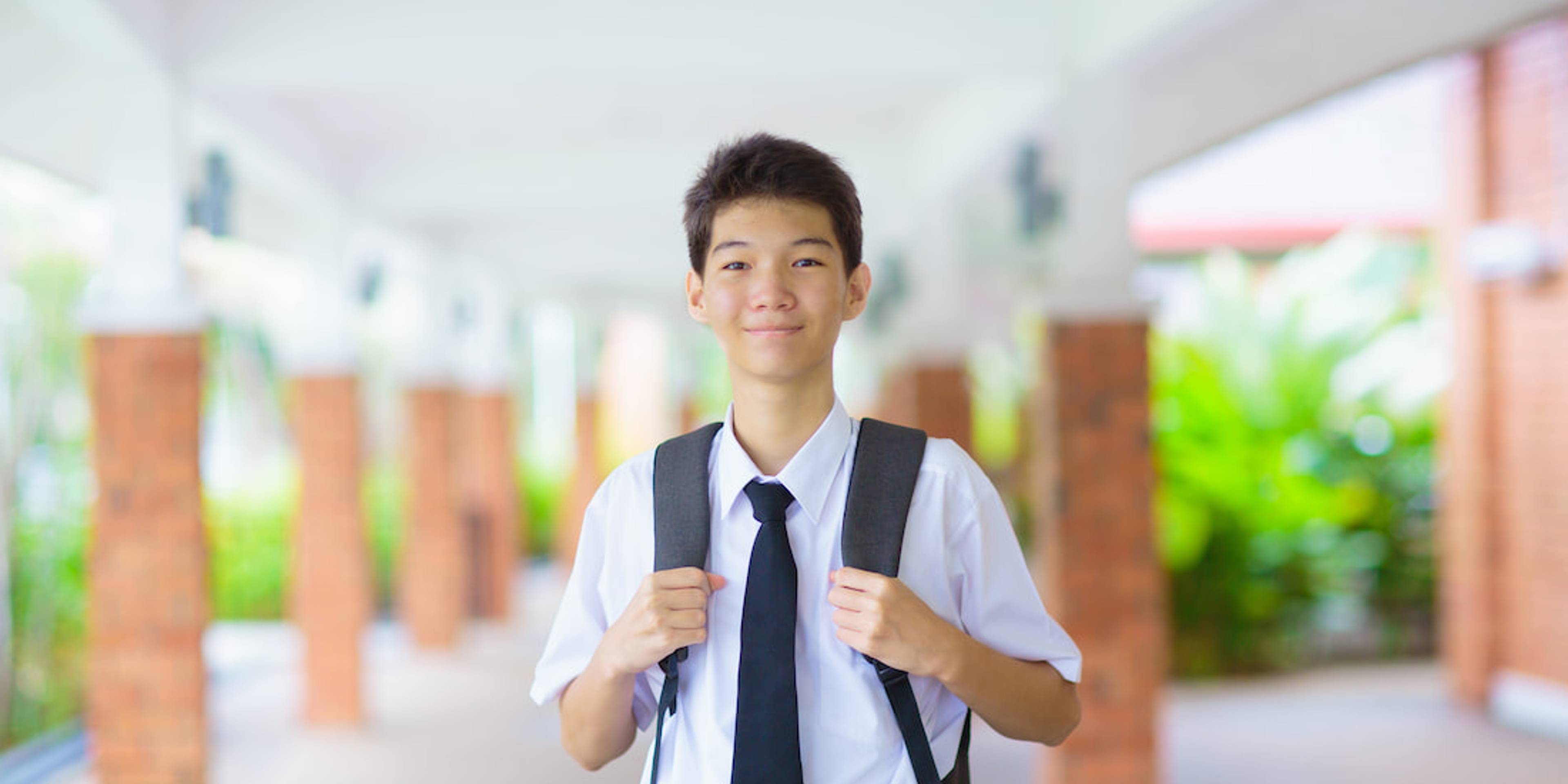
Aug 19, 2024
Supporting children's transition to secondary school
Supporting children to successfully transition from primary to secondary or senior school is vitally important. It's a big life change, which can leave both parents and children feeling excited and nervous in equal measure. At Tooled Up, we often use the analogy of a journey for the transitional experience. In fact, anyone who has attended or watched a talk with our founder, Dr Kathy Weston, is likely to have heard her say that we'd all want our children to be well prepared for any journey they go on, and that, as loving parents and carers, we wouldn't dream of sending them off on any journey without the right equipment, mindset and strategies to reach their destination safely and securely. Transition to a new school is no different. Research shows that there are numerous holistic protective factors that can help to ease transition. Conversely, it's also the case that problems with successfully transitioning to secondary school and subsequent lower levels of school connectedness are associated with lower education outcomes, school drop-out, higher levels of depression and anxiety, and increased involvement in criminal, violent and antisocial behaviour. Research also shows that these difficulties may not be equal across different socio-demographic variables, with children from underserved communities (including those from minority ethnic backgrounds and lower socio-economic status) and children with behavioural difficulties facing greater challenges during the transition to secondary school. It's therefore important for all parents and educators to consider how to make this transition as seamless as possible. Along with her co-authors, our Researcher of the Month, Dr Aurelie Lange, has published a new paper which evaluates the efficacy of a new UK-based online intervention called Level Up. In it, Dr Lange seeks to explore families' experiences of facilitators and barriers to engagement and change.

Jul 15, 2024
The impact of digital experiences on teens with mental health vulnerabilities
Over the last decade, digital developments have led to major changes in the ways that teens learn, work, play and interact with others. Digital access is a daily reality for most children and young people. Nine in 10 children in the UK now own a smartphone by the time they reach the age of 11, and the large majority of children aged 11 now use social media (78%) and have a social media profile (72%), despite being younger than the minimum age requirement for many platforms. By the time teens are 17 years old, 97% will use social media. Coincident with this change, adolescent mental health problems have also increased in prevalence. It is therefore no surprise that much research has focused on the relationship between digital experiences and adolescent mental health. However, comparatively few studies have directly compared the experiences of teens with mental health conditions meaning that some key questions remain unanswered. Do adolescents with pre‐existing mental health conditions differ in terms of why and how they engage with the digital world compared to peers without such difficulties? Are specific mental health conditions linked to different patterns of digital usage? What role do such differences play in the development and escalation of these conditions? In a recent paper, our Researcher of the Month, Dr Kasia Kostyrka-Allchorne, and her colleagues, explore what the evidence shows about the digital experiences of teens with mental health vulnerabilities.
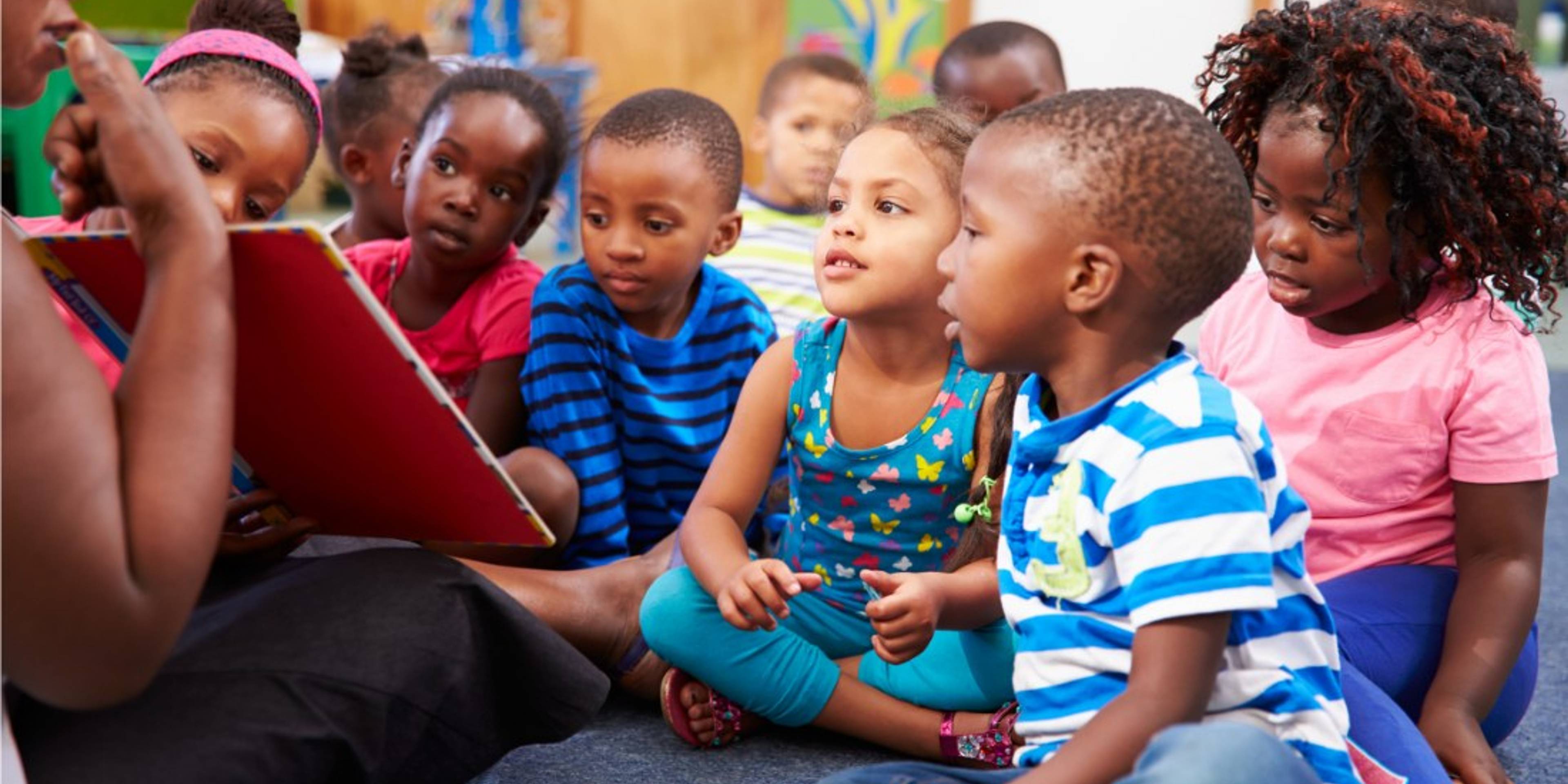
Jun 13, 2024
NELI Preschool: a new oral language enrichment programme for preschools and nurseries
Oral language skills provide the foundation for formal education, yet many children enter school with language weaknesses. Oral language is fundamental to children’s overall development and educational success. It is linked to all higher level cognitive skills and is pivotal for literacy development, and education more generally. It’s also vitally important for children’s social and emotional development. The term oral language refers to a complex set of skills that should ideally work seamlessly together to enable children to communicate with others by producing and understanding language. It’s an umbrella term, encompassing numerous component skills which include having a good vocabulary and the grammatical ability to combine words effectively to convey meaning, along with an understanding of cause and effect, memory skills and the ability to plan what to say and what not to say. Language skills develop rapidly between the ages of 3–6 years making preschool an excellent time to intervene to support language development. Because of this, Dr Gill West and her colleagues – as part of a team headed by Professor Charles Hulme – have developed and evaluated the efficacy of a new language enrichment programme, the Nuffield Early Language Intervention—Preschool (NELI Preschool), which is delivered to children the year before they enter formal education. The programme combines language enrichment for all children, with additional targeted support for those with language needs, potentially narrowing the gap in language skills associated with social disadvantage.
